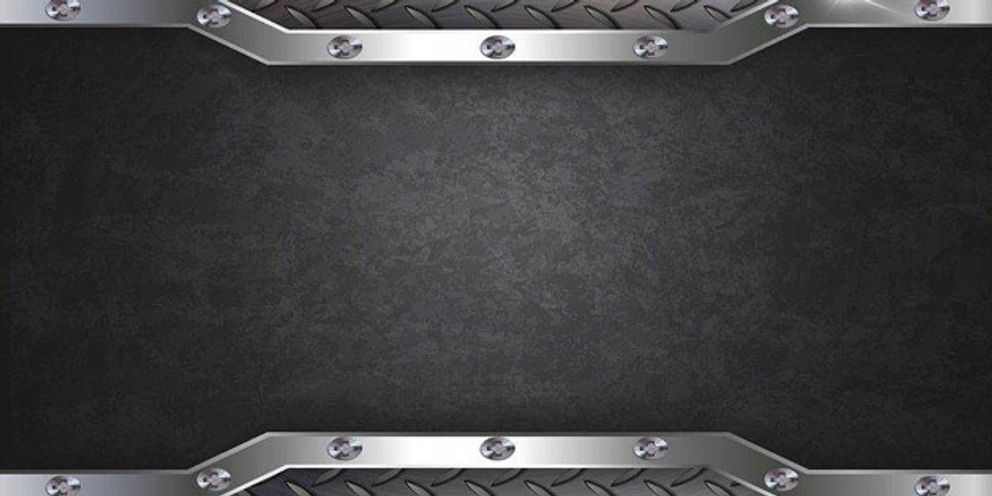
Trying to Decide Between an Aluminum or Steel Truck Bed? Here's Everything You Need to Know
Image Credit: aranstock
/ Pixabay
Written By: John Linden
Chocolate or vanilla? How about Pepsi or Coke? Hold the mayo? Or slather it on. Life is full of choices, and the decisions we make can drastically alter the user experience. The same goes when it comes to choosing a pickup truck bed. The choices? Steel or aluminum. Does it really matter? What are the main differences between an aluminum truck bed compared to a steel one?
Steel offers more strength and is less costly, but it pays for those benefits by being a lot heavier. Aluminum has become the popular choice in recent years due to being cheaper to repair, as well as requiring less annual maintenance. The lighter weight of aluminum also increases fuel economy.
Thankfully, in this article, we’re going to take a closer look at the differences between the two. By the end, you should all the information you need to decide whether steel or aluminum is the right material for your next truck bed.
Corrosion

Image Credit: Weld House LLC / Flickr
Steel contains about 98 to 99% iron, which is the main culprit when it comes to rust (the other 1 to 2% being carbon). Automakers combat this by galvanizing their truck beds, which is the process of applying a protective zinc coating. Since zinc is more reactive than iron, it absorbs oxidation before it can reach the vulnerable surface behind it. Yet, this only works until the surface underneath is exposed, which occurs from things like dings, dents, or scratches. Once that happens, moisture and air will soon lead to rust, which spreads and will eat holes in your truck bed.
Aluminum, on the other hand, doesn’t rust. However, it can develop corrosion, but the funny thing is that aluminum actually gains strength when this happens. Rather than eating away at the metal, it creates what’s known as aluminum oxide, which protects against further erosion. While it does detract from the aesthetics, it won’t impede your ability to use your truck. Less time spent repairing rust spots means more time at the job site.
Now that you have a better idea of how these two metals react to corrosion. Let’s review what you can expect in terms of maintenance.
Maintenance
With steel, it all comes down to preventing rust, which means you need to regularly be checking for exposed metal. How do you know if a ding or dent is at risk? A chip in the paint is a good indicator. For a scratch, if the metal surface shows, then it’s vulnerable to rust. Finding a new blemish doesn’t mean you have to take it directly to a body shop, but it does mean you should inspect it every now and then. If you notice it starting to rust, know that it will only get worse without a repair.
For small blemishes, you might consider ordering a vial of matching touchup-paint from the manufacturer. Whenever you notice an exposed area, simply apply a small amount and let it dry overnight. Doing so will seal it and keep it from being susceptible to moisture and air.
The problem with repairing a steel truck bed at a body shop is that a lot more work goes into the process. Not only does the area need to be sanded down, but it needs to be galvanized again as well. More time leads to a heftier bill.
Then there’s aluminum, which requires much less attention — if any. The only thing to keep an eye on is things like hinges or latches since these are rarely made of aluminum.
Let’s now look at the strength of a steel truck bed VS an aluminum one.
Strenght

Image Credit: Ryan Mcguire / Pixabay
Can you really trust a truck bed that’s made from the same thing as your soda can? Remember, steel is 98 to 99% iron, and only 1 to 2% of added carbon makes it significantly sturdier. The same goes for aluminum, which, in the case of a truck bed, contains only about 95% aluminum. The other 5% consists of metals like copper, titanium, zinc, and chromium. Which makes the comparison much closer than just putting a steel bed up against an aluminum one. Additional elements include magnesium, silicon, and lithium.
The strength of steel lies in its ability to withstand more force or weight without bending or warping. Aluminum, though, is three times more flexible, which allows it to spring back to its original shape easier.
Which is better for a truck bed? When you take into account the various metals and elements, added to the aluminum composition, and compare the weight. The difference is hardly much at all.
Speaking of weight. Let’s review how the two compare and how it affects your pocketbook.
Weight/Cost

Image Credit: Jade-Michoko / Pixabay
If you take an average-sized aluminum truck bed, it generally will weigh about 40% less than a comparable steel one. How much does this equate to? About 700 to 800 LBS. There’s a reason NASA constructs much of its space shells out of aluminum alloys. Because it translates into better gas mileage without sacrificing much in terms of strength.
How much savings can you expect? Well, to give you a better idea, let’s do some simple math. If you drive 10,000 miles per year and average 15-MPG, at $2 per gallon, you’ll save $95 per year, or nearly $8 a month. While the numbers aren’t yet out on the exact difference. It has been concluded that truck bodies featuring primarily aluminum can achieve as much as 10% better mileage. Using these numbers, if you drive 10,000 miles a year, you should expect to save an extra $95 to $190 per year or $8 to $16 per month.
Less weight also translates into a higher payload. If you save 700- to 800-LBS by switching to aluminum, you can effectively add that to the max payload. Meaning fewer trips back and forth from the hardware store to the job site.
Aluminum is generally more expensive compared to steel. How much? About $400 to $500, according to Ford, the only consumer pickup currently offering an aluminum truck bed straight from the showroom. However, if you’re someone who keeps your truck for a few years, that added cost is quickly replaced in savings. Not to mention the other added benefits of choosing an aluminum truck bed compared to a steel one.
Aluminum VS Steel — Which is Better for You?
Aluminum, magnesium, chromium, zinc, galvanized — confused yet? We hope our guide has helped you choose which truck bed material will suit you best. For most, aluminum is the clear winner. Thanks for reading — and good luck.
Updated